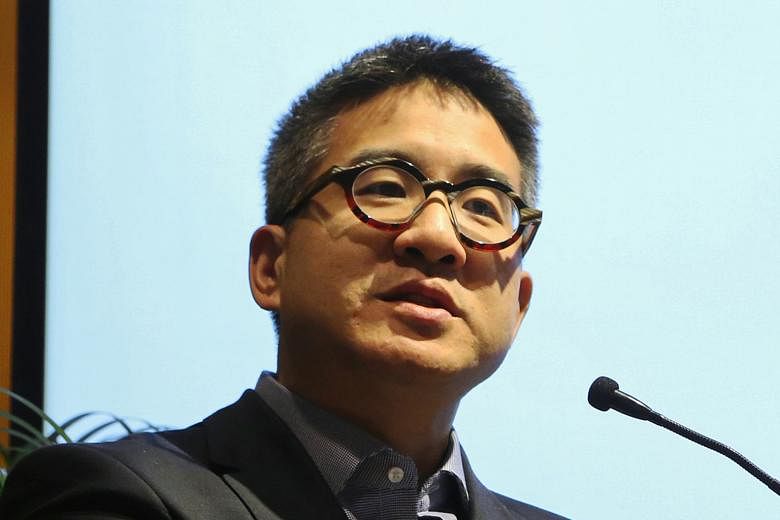Amid growing concerns about how well the Singapore economy will thrive in the future, one thing is certain: much patience will be needed.
That is because economic growth here will increasingly have to rely on constant innovation and technological breakthroughs, both of which rarely yield huge, immediate returns because innovations are often rapidly displaced, while breakthroughs are few and far between.
In an interview here late last month, Professor Joseph Wong, 43, an innovation expert, said: "It helps us to really understand that these things take a long time. That's why oftentimes when we refer to venture capital, we refer to it not only as risk capital, but also as patient capital. So the expectation is that they (venture capitalists) not only have to assess risk, but also assess it against time." Venture capitalists are typically the initial investors in projects with uncertain outcomes.
Prof Wong is vice-provost of international student experience, associate vice-president and professor of innovation and political science at the University of Toronto. He was in town last month to speak at the Lee Kuan Yew Centre for Innovative Cities' high-level international roundtable on the future of the global economy.
Between 2003 and 2008, he visited Singapore many times and spoke to many Singaporeans, including top policymakers, then published his findings in his 2011 book, Betting On Biotech: Innovation And The Limits Of Asia's Developmental State, which also examined the successes of South Korea and Taiwan.
NO RESTING ON LAURELS
South Korean conglomerate Samsung, for one, learnt recently just how stunning the displacing of even the best innovations could be. One of its vice-presidents lamented to Prof Wong that Samsung was "getting wiped out by the Chinese in panel displays". Such displays were the lifeblood of Samsung's business not long ago. Samsung, the vice-president added, was now fighting back by investing heavily in software and backing start-ups.
Prof Wong argued that an innovation-led, or cutting-edge, economy faced "fundamentally different challenges" from the "Asian miracle" model of economic growth that turned Singapore, South Korea and Taiwan into economic tigers in the 1990s.
He told The Sunday Times: "In the past, one of the key features of the very effective catch-up economies of Asia was that they would create winners pretty easily and relatively quickly, whether they were moving into semiconductors, the hard-disk sector or other computer peripherals. That was because the technology and market demand were already there.
"But," he stressed, "jump-starting something like biomedical innovation is going to take a long time. So you see a massive investment in R&D (research and development), venture capitalists and so on, but it's still going to take a long time before you see any kinds of winners."
Sometimes, some governments even have to switch horses midstream, as it were. Taiwan, he noted, was initially geared towards new drug discovery. But its Industrial Technology Research Institute soon saw Taiwan's considerable strength in precision manufacturing, particularly in the electronics sector, and so shifted its focus to making medical devices. That has since resulted in, among other things, Taiwan's ground-breaking "lab on a chip", Prof Wong added.
Noting that the frontiers of innovation-led economies were blurry at best or, as he put it, "you don't know what you don't know", he stressed: "In the past, we were making bets on that which we were uncertain but relatively well-informed. Now, we are effectively betting blind."
MANAGING UNCERTAINTY
Nonetheless, Prof Wong was quick to add, there are still ways in which countries can manage the uncertainties from placing their bets, as well as temper citizens' expectations of striking it rich, including "starting to value failure" by, say, making personal bankruptcy declarations less damaging to an individual's dignity.
He added: "Innovation requires constant experimentation, so for every great innovative outcome, there are hundreds, if not thousands, of failures. So being kiasu is a real disincentive for the kind of innovative behaviour and experimentation that you need."


